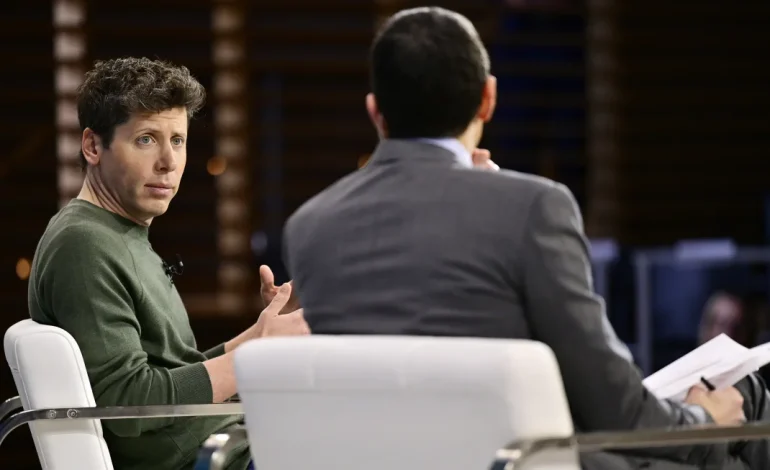Sam Altman, the CEO of OpenAI, downplayed concerns over artificial intelligence and its potential misuse, including fears regarding his former collaborator, Elon Musk.
Speaking at the New York Times DealBook Summit, Altman addressed the notion that Musk could leverage his political connections, particularly with President-elect Donald Trump, to harm competitors in the tech space.
Altman expressed confidence that Musk, despite his growing influence, would not abuse political power.
“I believe pretty strongly that Elon will do the right thing,” Altman said.
He added that it would be “profoundly un-American” to use political leverage in such a way. Altman’s comments reflect his optimism in both Musk’s ethical judgment and the broader potential of AI to benefit society.
The two tech giants have had a complicated history, with Musk previously co-founding OpenAI before a fallout that led to his establishment of xAI, a rival AI company. Despite ongoing legal battles and disputes over OpenAI’s business practices, Altman remains unfazed by the rivalry, dismissing the notion that Musk’s influence could be used to stifle competition or monopolize the AI industry.
At the summit, Altman also sought to ease concerns over the risks posed by AI. He acknowledged that the technology is advancing rapidly but insisted that its impact on the average person would not be as dramatic as some fear. According to Altman, the arrival of Artificial General Intelligence (AGI)—machines capable of performing any task a human brain can—would likely accelerate economic growth without upending everyday life.
OpenAI, backed by major investments from Microsoft, is working towards the creation of AGI within the next few years. Although Altman recognizes the complex challenges associated with AI development, he expressed faith that the brightest minds in the field would find solutions to potential safety concerns. He also pointed to the future role of global coordination in regulating AI, although he acknowledged that such coordination would be challenging.
The Hill, CNN, and the New York Times contributed to this report.









